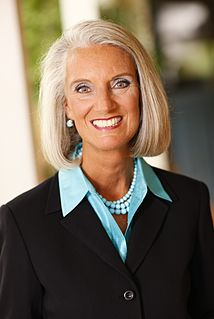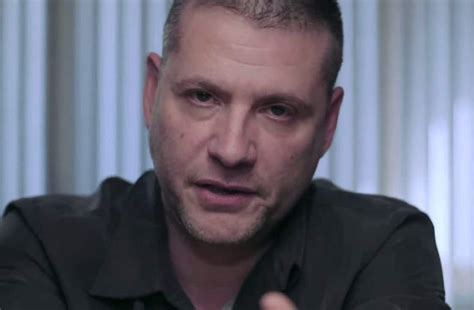A Quote by Mario Cuomo
Way down deep the American people are afraid of an entangling relationship between formal religions - or whole bodies of religious belief - and government. Apart from constitutional law and religious doctrine, there is a sense that tells us it's wrong to presume to speak for God or to claim God's sanction of our particular legislation and his rejection of all other positions. Most of us are offended when we see religion being trivialized by its appearance in political throw-away pamphlets.
Quote Topics
Afraid
American
American People
Apart
Appearance
Away
Being
Belief
Between
Bodies
Claim
Constitutional
Constitutional Law
Deep
Doctrine
Down
Formal
God
Government
His
Law
Legislation
Most
Offended
Other
Our
Particular
People
Political
Positions
Presume
Rejection
Relationship
Religion
Religions
Religious
Religious Belief
Sanction
See
Sense
Speak
Tells
Throw
Us
Way
Whole
Wrong
Related Quotes
Everyone talks about religious liberty, but no one believes it. So let us be blunt about it: we must use the doctrine of religious liberty to gain independence for Christian schools until we train up a generation of people who know that there is no religious neutrality, no neutral law, no neutral education, and no neutral civil government. Then they will get busy in constructing a Bible-based social, political, and religious order which finally denies the religious liberty of the enemies of God.
I believe in a wall between church and state so high that no one can climb over it. When religion controls government, political liberty dies; and when government controls religion, religious liberty perishes. Every American has the constitutional right not to be taxed or have his tax money expended for the establishment of religion. For too long the issue of government aid to church related organizations has been a divisive force in our society and in the Congress. It has erected communication barriers among our religions and fostered intolerance.
The American people need no course in philosophy or political science or church history to know that God should not be made into a celestial party chairman. To most of us, the manipulative invoking of religion to advance a politician or a party is frightening and divisive. The American people will tolerate religious leaders taking positions for or against candidates.
A personal relationship with God enhances life. First, it enables us to accept our limitations without being frustrated by them. It assures us that problems we can't solve are not necessarily insoluble. Second, when we need it, God offers us a sense of forgiveness, a sense of cleansing from our incompleteness. . . . Last and perhaps most important, a personal relationship with God redeems us from the fear of death. We needn't be afraid that all our good deeds will vanish when we die.
[T]he bill exceeds the rightful authority to which governments are limited by the essential distinction between civil and religious functions, and violates in particular the article of the Constitution of the United States which declares that Congress shall make no law respecting a religious establishment.... This particular church, therefore, would so far be a religious establishment by law, a legal force and sanction being given to certain articles in its constitution and administration.
Only when we see that the way of God's law is absolutely inflexible will we see that God's grace is absolutely indispensable. A high view of the law reminds us that God accepts us on the basis of Christ's perfection, not our progress. Grace, properly understood, is the movement of a holy God toward an unholy people. He doesn't cheapen the law or ease its requirements. He fulfills them in his Son, who then gives his righteousness to us. That's the gospel. Pure and simple.
According to my religious belief, I'm sorry if you feel like I'm pushing this on you - my religious belief is that you behave the way God wants us to behave. And that's simply love God and love one another. If we did that, there would be no need for any of the other commandments. It would be great. But in the same vein, we would have obtained paradise by that point. And it's tougher to get to paradise by that point.
I think enormous harm is done by religion - not just in the name of religion, but actually by religion. ... Many people do simply awful things out of sincere religious belief, not using religion as a cover the way that Saddam Hussein may have done, but really because they believe that this is what God wants them to do, going all the way back to Abraham being willing to sacrifice Isaac because God told him to do that. Putting God ahead of humanity is a terrible thing.
There is no way to have a real relationship without becoming vulnerable to hurt. Christmas tells us that God became breakable and fragile. God became someone we could hurt. Why? To get us back... No other religion-whethe r secularism, Greco-Roman paganism, Eastern religion, Judaism, or Islam-believes God became breakable or suffered or had a body.
It goes with the passionate intensity and deep conviction of the truth of a religious belief, and of course of the importance of the superstitious observances that go with it, that we should want others to share it - and the only certain way to cause a religious belief to be held by everyone is to liquidate nonbelievers. The price in blood and tears that mankind generally has had to pay for the comfort and spiritual refreshment that religion has brought to a few has been too great to justify our entrusting moral accountancy to religious belief.
There are two gods. The god our teachers teach us about, and the God who teaches us. The god about whom people usually talk, and the God who talks to us. The god we learn to fear, and the God who speaks to us of mercy. The god who is somewhere up on high, and the God who is here in our daily lives. The god who demands punishment, and the God who forgives us our trespasses. The god who threatens us with the torments of Hell, and the God who shows us the true path.
There are two gods. A god who casts us off because of our sins, and a God who calls to us with His love.
To be in a relationship with God is to be loved purely and furiously. And a person who thinks himself unlovable cannot be in a relationship with God because he can't accept who God is; a Being that is love. We learn that we are lovable or unlovable from other people. That is why God tells us so many times to love each other.
































